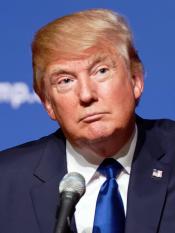Aggregated News

Of all the memorable lines from this year’s election, the one I keep returning to months later—for self-interested reasons—is from Hillary Clinton’s acceptance speech at the Democratic National Convention. “And I believe in science,” she said, as she pivoted to climate change. She giggled. The crowd roared.
It wasn’t just her remark that struck me but also the response. I’m a journalist who writes about science, so my Twitter feed that night was full of scientists and writers who had waited long to see science on the political stage: Isn’t it absurd she had to say she believed in science? I can’t believe 2016. And most smug of all: Hillary, science is not a belief.
* * *
Donald Trump will be president in two months. He’s so far said very little about science—the notable exception, of course, being his loud rejection of climate change. His advisors, though, are relishing the end of all earth science research at NASA, and scientists have worried a Trump administration will slash funding for other areas of research...



